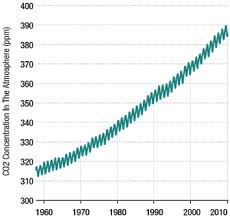(Journal Article) Few, if any, political scientists currently study climate change adaptation or are even aware that there is a large and growing interdisciplinary field of study devoted not just to mitigating greenhouse gas emissions but to reducing our vulnerability to the now-inevitable impacts of climate change. The lack of political science expertise and research represents an obstacle for adapting to climate change, because adaptation is fundamentally political. Technical advances in adaptations for infrastructure, agriculture, public health, coastal protection, conservation, and other fields all depend on political variables for their implementation and effectiveness. For example, adaptation raises questions about political economy (adaptation costs money), political theory (adaptation involves questions of social justice), comparative politics (some countries more aggressively pursue adaptation), urban politics (some cities more aggressively pursue adaptation), regime type (democracies and authoritarian regimes may differently pursue adaptation), federalism (different levels of government may be involved), and several other fields of study including political conflict, international development, bureaucracy, migration, media, political parties, elections, civil society, and public opinion. I review the field of climate change adaptation and then explore the tremendous contributions that political scientists could make to adaptation research.
——-
The world is being transformed by climate change. Without human intervention, hundreds of thousands of species are threatened with extinction; infectious diseases are emerging in new areas; ecosystems on which humans depend for food, water, and clean air are increasingly dysfunctional; and urban environments are at risk from rising seas, storm surge, heat waves, and the resulting harmful effects on public health and critical infrastructure. Even if today all countries could somehow immediately reduce greenhouse gas emissions, existing emissions guarantee considerable climate change, and that climate change has considerable impact.
Although we need to continue mitigation efforts (steps to reduce emissions) to minimize the damage, the unfortunate reality is that we also must learn to live in a world transformed by climate change. Countries, states, cities, communities, businesses, and individuals are now compelled to develop strategies that allow societal “adaptation” to inevitable climate change. Adaptation, according to the Intergovernmental Panel on Climate Change (IPCC), is the reduction of vulnerability to climate change. Adaptation involves protecting our coasts, cities, water supply, food supply, public health, ecosystems, and infrastructure. While not an alternative to mitigation, adaptation has become a crucially necessary accompaniment and a growing interdisciplinary field of study. […]
See the full article in Perspectives on Politics, April 2014 (subscription)
© American Political Science Association
[[{“type”:”media”,”view_mode”:”media_original”,”fid”:”2320″,”attributes”:{“alt”:””,”class”:”media-image”,”height”:”219″,”style”:”width: 230px; height: 219px;”,”typeof”:”foaf:Image”,”width”:”230″}}]]











